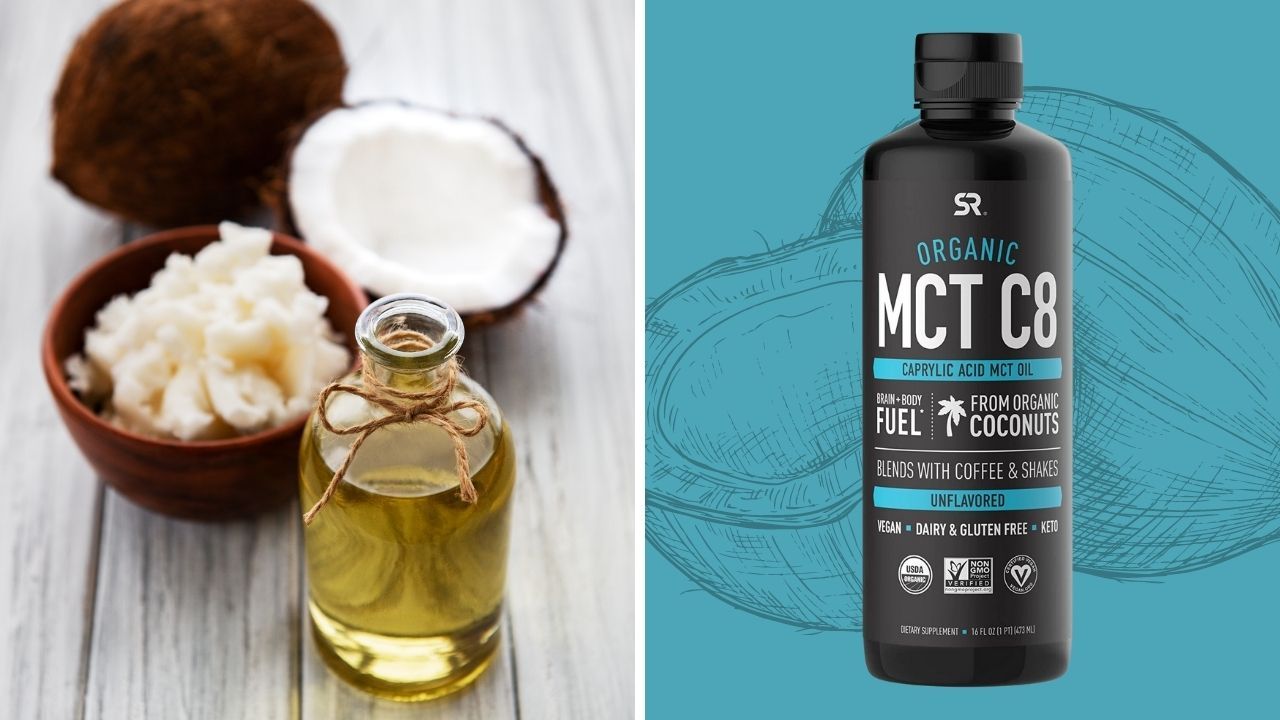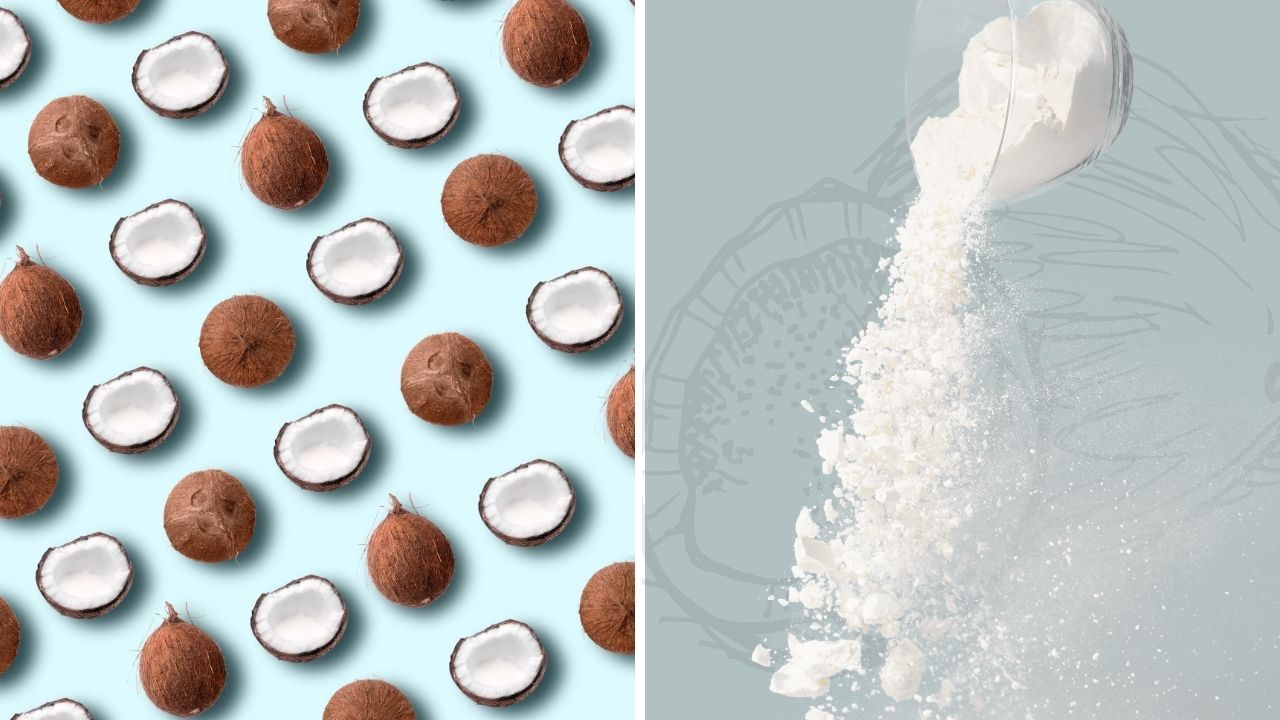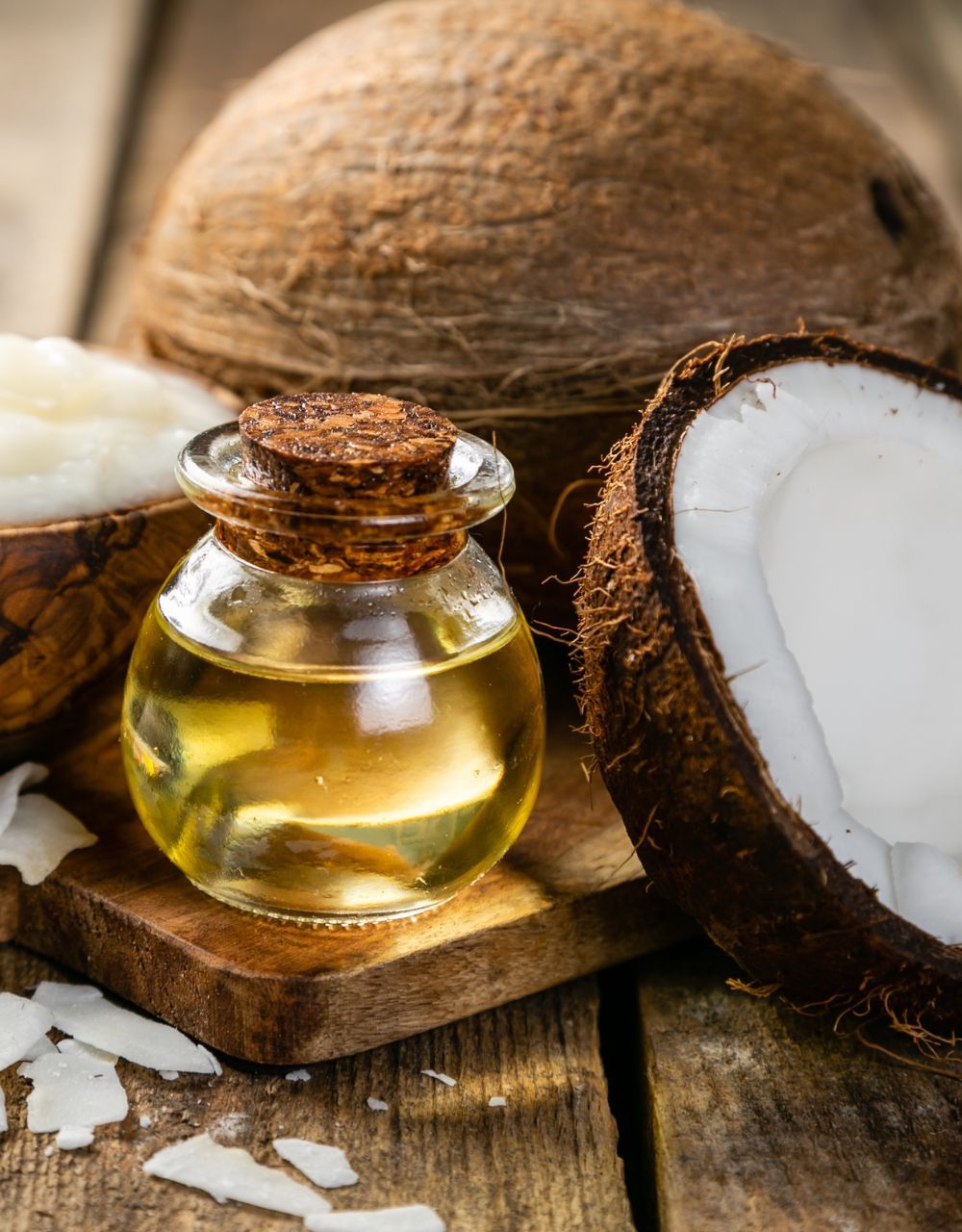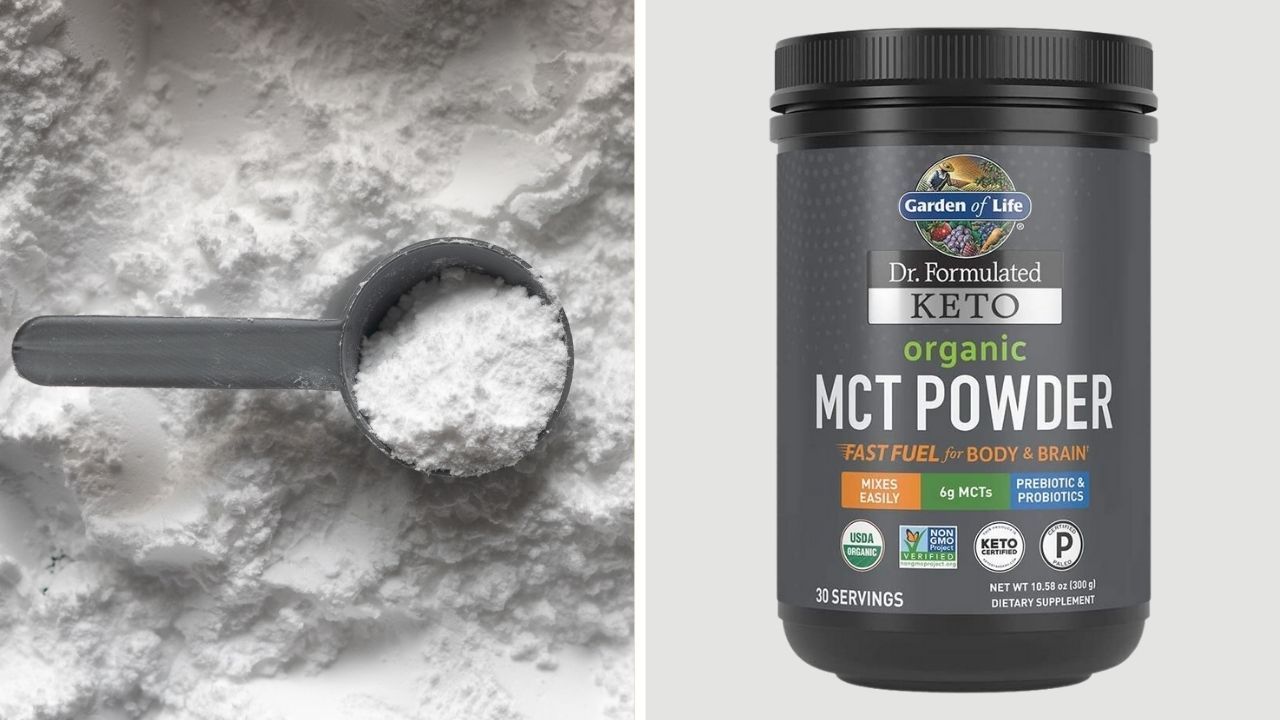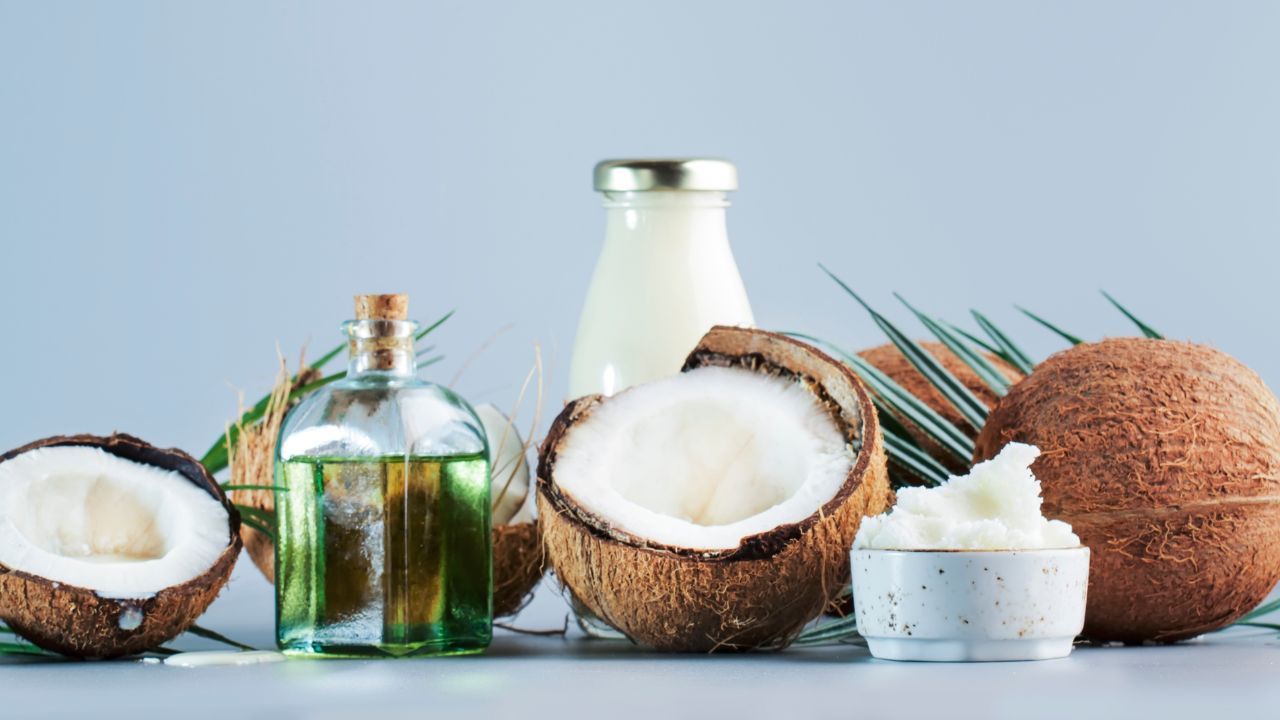
Is MCT Oil The Same As Coconut Oil? Let's Settle This!
Demystifying the confusion: Is MCT oil the same as coconut oil? Join us as we delve into the facts.
Today we're diving deep into a topic that has sparked much debate in the health and wellness community - the comparison between MCT oil and coconut oil.
Why should you care? Well, understanding the differences between these two oils can help you make more informed decisions about your diet and overall health.
MCT oil and coconut oil are often mentioned interchangeably in health circles, but are they really the same thing?
Spoiler alert: they're not. While they share some similarities, they also have unique properties that set them apart. Let's unravel this mystery together!
Understanding MCT Oil
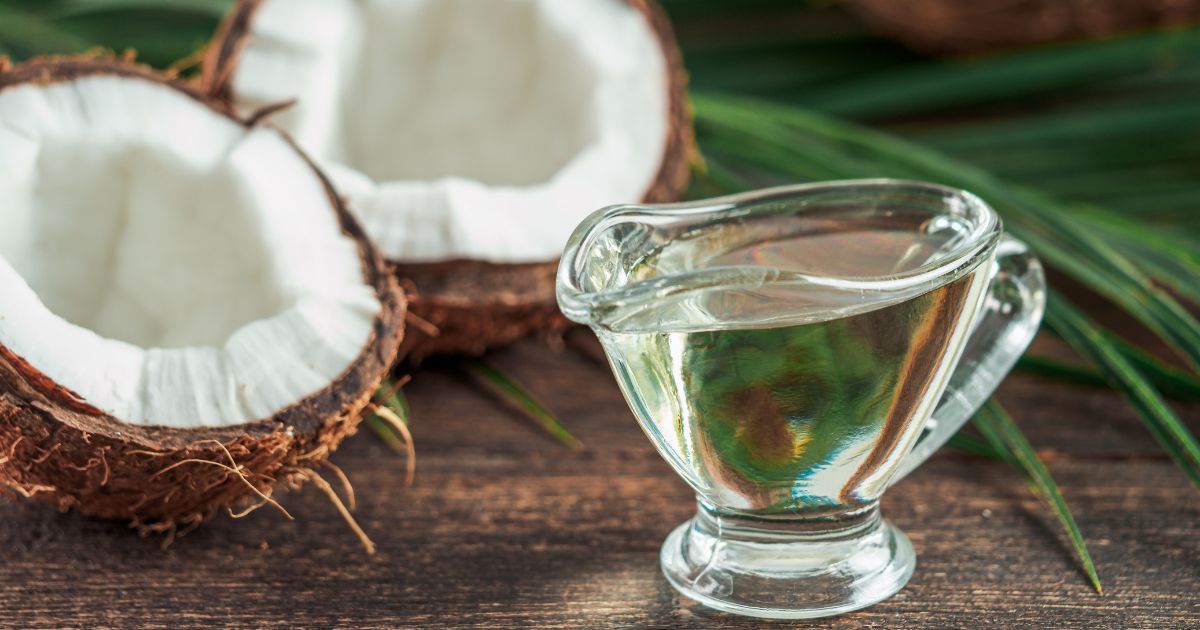
What is MCT oil?
MCT oil is a concentrated source of these fats, usually derived from coconut or palm oil.
The term "medium-chain" refers to the length of the fat molecule's chemical structure.
Medium-chain fats are shorter than long-chain fats, which are found in foods like avocados and olive oil, and because of this, they're digested and absorbed into the body more quickly.
This means they can provide a fast source of energy and are less likely to be stored as fat.
- MCT oil often contains either 100% caprylic acid, 100% capric acid, or a combination of the two. And each one offers unique health benefits.
- For example, C8 is known for its potential to boost cognitive function, while C10 may support a healthy metabolism.
The Process of Extracting MCT Oil
MCT oil is usually derived from coconut or palm kernel oil, through a process called fractionation. This process separates the MCTs from the longer-chain fats, resulting in a more concentrated source of MCTs.
Common Uses and Consumption Methods of MCT Oil
MCT oil has gained popularity for its versatility and potential health benefits. Here are some common uses:
- Dietary Supplement: Due to its quick absorption, MCT oil is often used as a supplement for instant energy. It can be beneficial for athletes looking for a quick energy source during prolonged workouts.
- Ketogenic Diet Aid: MCT oil is a staple in ketogenic diets. Since it's quickly converted into ketones, it can help individuals reach or maintain a state of ketosis, where the body burns fat for fuel instead of carbohydrates.
- Weight Management: Some studies suggest that MCT oil might help with weight loss by increasing feelings of fullness and boosting metabolic rate.
- Brain Function Support: MCTs can cross the blood-brain barrier and be used as an energy source by the brain. Therefore, MCT oil is often marketed as a brain-boosting supplement that may support cognitive function and mental clarity.
- Cooking: MCT oil can be used in low-heat cooking or added to foods and drinks. It's commonly mixed into smoothies, salad dressings, and bulletproof coffee—a coffee drink made with butter and MCT oil.
- Skin Care: While not as common, MCT oil is sometimes used in natural skincare products. It's thought to have moisturizing properties and can be found in DIY homemade cosmetics.
Remember, while MCT oil has potential benefits, it's still high in calories and should be used in moderation.
Understanding Coconut Oil
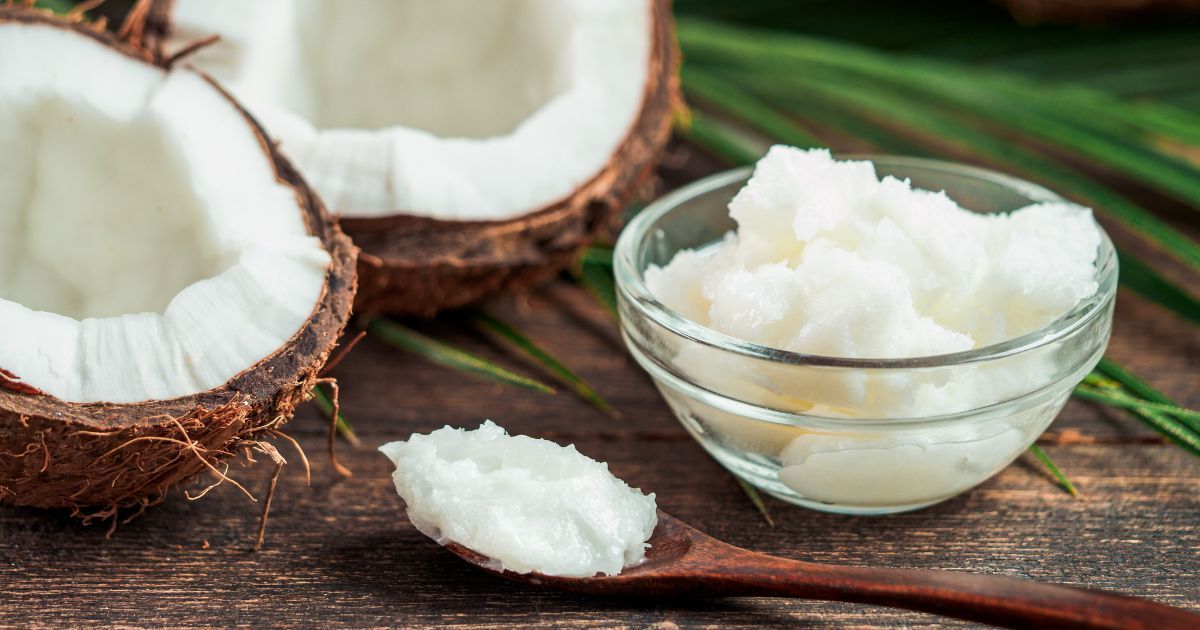
What is Coconut Oil?
It has a firm texture at cool or room temperature and turns into a liquid when heated.
There are two main types of coconut oil: virgin and refined.
- Virgin coconut oil is made from fresh coconut meat, which helps preserve its natural coconut flavor and aroma.
- Refined coconut oil is made from dried coconut meat, known as copra, and may undergo additional processing steps that remove the coconut flavor and smell.
The MCTs, particularly lauric acid, are more easily digested than long-chain fatty acids found in other fats and oils, and they're quickly used for energy in the body.
Beyond its culinary uses, coconut oil is also popular in beauty and skincare routines for its moisturizing properties. It's often used as a natural moisturizer, hair conditioner, and even as a gentle makeup remover.
The Process of Extracting Coconut Oil
Coconut oil is extracted either by dry or wet processing. Dry processing involves pressing the copra (dried meat of the coconut) to extract the oil. While wet processing uses fresh coconut meat.
Dry Processing
In dry processing, the meat of the coconut (copra), is first extracted from the shell and dried using fire, sunlight, or kilns.
- The dried copra is then pressed in large expeller presses to extract the oil.
- However, due to the high heat involved in this process, the resulting oil often contains impurities and has a darker color and stronger flavor.
To make the oil edible, it must undergo refining, bleaching, and deodorizing, which removes impurities and neutralizes the taste and odor.
Wet Processing
Wet processing involves extracting the oil from fresh coconut meat, creating what's known as virgin coconut oil.
- The fresh coconut meat is quickly dried to prevent it from spoiling, then mechanically pressed to extract the oil.
Another wet processing method involves making coconut milk by pressing the fresh meat, then separating the oil from the water and protein.
- The oil can be separated through various methods such as boiling, fermentation, refrigeration, enzymes, or mechanical centrifuge.
In both processes, care must be taken at every step to ensure high-quality oil. Factors such as the freshness of the coconuts, the method of drying, and the type of machinery used can all affect the quality, taste, and nutritional content of the final product.
Common Uses and Consumption Methods of Coconut Oil

Coconut oil is a highly versatile product that can be used in numerous ways. Here are some of the most common uses and methods of consumption:
- Cooking and Baking: Coconut oil is a popular choice for cooking and baking due to its high smoke point, which makes it suitable for frying and sautéing. It also gives a delicious tropical flavor to dishes and can be used as a dairy-free substitute for butter in vegan baking.
- In Coffee or Tea: Some people add a spoonful of coconut oil to their morning coffee or tea. This not only gives a rich, creamy texture but also provides a quick source of energy.
- Smoothies: Adding coconut oil to smoothies can boost their nutritional content, making them more filling and energizing.
- Oil Pulling: This is an ancient dental technique that involves swishing a tablespoon of coconut oil in your mouth for around 20 minutes. This practice is believed to improve oral health.
- Skin Care: Coconut oil is often used as a natural moisturizer, thanks to its nourishing and hydrating properties. It can be applied directly to the skin to help soften and moisturize.
- Hair Care: It's also used as a conditioner to promote shiny, healthy hair. You can massage it into your scalp, or apply it to the lengths of your hair for deep conditioning.
- Natural Deodorant: Due to its antibacterial properties, coconut oil can be used as a natural deodorant.
- Makeup Remover: It can effectively remove makeup while also moisturizing the skin.
MCT Oil vs Coconut Oil
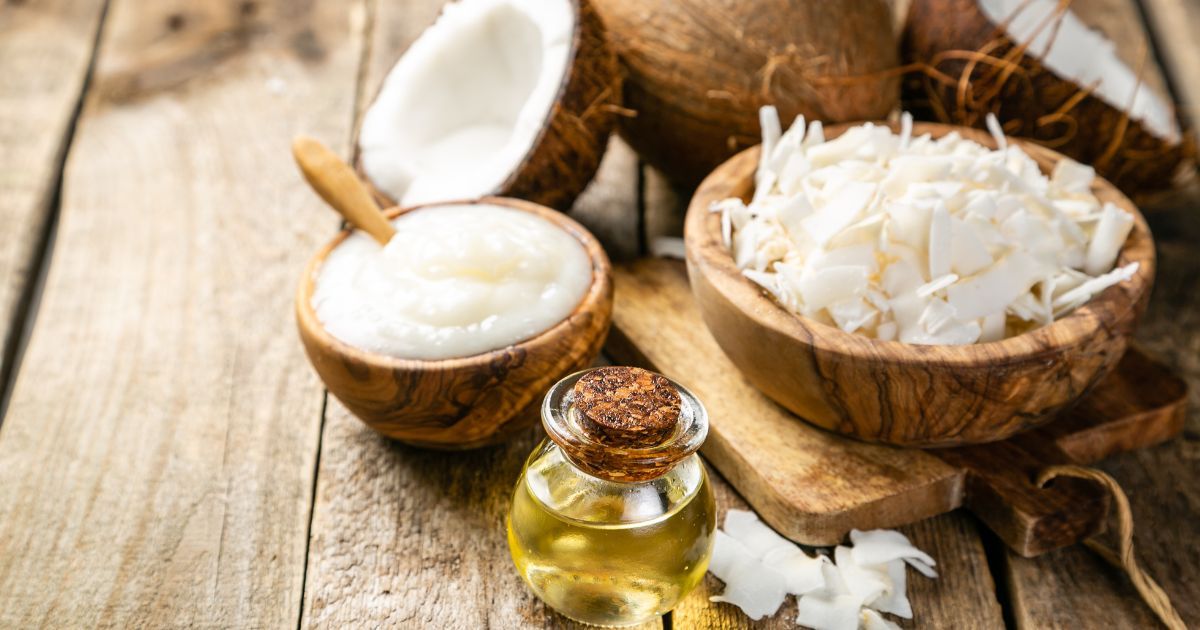
The Presence of MCTs in Coconut Oil
While both MCT oil and coconut oil contain MCTs, the concentration differs.
- Coconut oil contains about 50-60% MCTs, with a large portion being lauric acid (C12).
- MCT oil, on the other hand, is almost 100% MCTs and usually contains more of the potent C8 and C10 acids, making it a more concentrated source of MCTs.
Comparing the Health Benefits of MCT Oil and Coconut Oil
The comparison of health benefits between MCT oil and coconut oil can be quite complex, as both oils have their own unique properties. Here's a closer look:
MCT Oil
- Ketone Production: MCT oil is more efficient than coconut oil in producing ketones, which are energy sources that the body produces when it's breaking down fat for energy. This makes MCT oil particularly beneficial for those following a ketogenic diet.
- Rapid Absorption: MCT oil is quickly absorbed and transported throughout the body due to the smaller size of its fatty acids. It can provide a quick source of energy, particularly for those with certain malabsorption conditions or those on a ketogenic diet.
- Weight Management: There's some evidence to suggest that MCT oil may aid in weight loss by increasing feelings of fullness and enhancing metabolic rate.
- Cognitive Function: MCTs can cross the blood-brain barrier and be used by the brain for energy, potentially supporting cognitive function.
Coconut Oil
- Lauric Acid Content: Coconut oil is high in lauric acid, a type of MCT that has antimicrobial properties. This may support immune function and gut health.
- Heart Health: While coconut oil is high in saturated fat, some research suggests that it may increase good HDL cholesterol levels. However, it can also raise bad LDL cholesterol, so it should be consumed in moderation.
- Skin and Hair Care: Coconut oil is often used topically for its moisturizing benefits. It can help improve skin hydration and protect the hair.
- Cooking: Coconut oil has a high smoke point making it suitable for cooking at high temperatures. It also adds a distinctive flavor to dishes.
Which is Better? MCT Oil or Coconut Oil
So, you might be wondering, "Which one should I use, MCT oil or coconut oil?" Well, it depends on several factors.
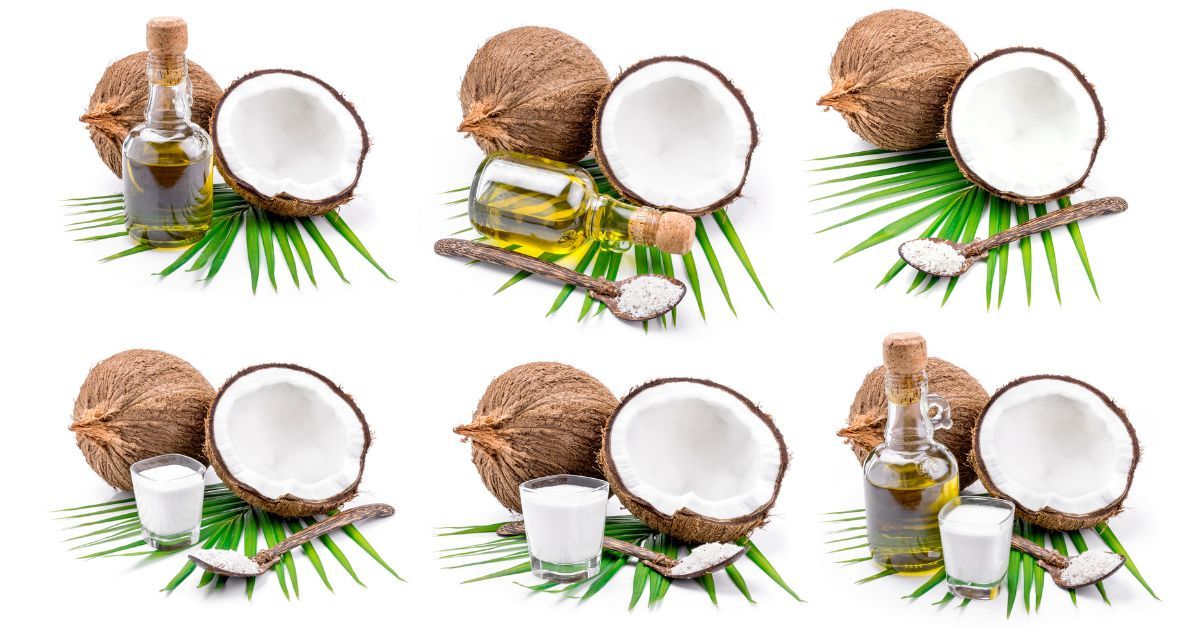
Factors to Consider When Choosing Between MCT Oil and Coconut Oil
When choosing between MCT oil and coconut oil, several factors should be taken into consideration:
- Dietary Goals: If you're following a ketogenic diet or looking for a quick source of energy, MCT oil may be the better choice due to its rapid absorption and conversion into ketones. However, if you're looking for a cooking oil that adds a unique flavor to dishes, coconut oil could be a suitable option.
- Health Benefits: Both oils have their own health benefits. MCT oil is often chosen for cognitive support, weight management, and promoting ketosis. Coconut oil, on the other hand, can boost HDL cholesterol (the "good" cholesterol) and has significant antimicrobial properties due to its high lauric acid content.
- Topical Use: For topical applications such as skin and hair care, coconut oil is usually preferred. It's solid at room temperature, which makes it easy to apply and is known for its moisturizing properties.
- Taste and Cooking: Coconut oil has a distinct tropical flavor that can enhance certain dishes and a high smoke point that makes it suitable for various cooking methods. MCT oil is flavorless and not typically used for cooking as it doesn't handle high heat well.
- Price Point: Generally, MCT oil is more expensive than coconut oil due to the processing it undergoes to isolate the medium-chain triglycerides.
- Digestion: Some people might experience digestive issues when starting to use MCT oil, including diarrhea, vomiting, irritability, and stomach discomfort. Therefore, it's recommended to start with a small amount and gradually increase.
As you can see your health goals play a crucial role. Are you aiming for weight loss, improved brain function, or better energy levels?
- While both oils can help, MCT oil might provide quicker results due to its higher concentration of MCTs.
- On the other hand, if you're looking for a natural skin and hair care option, coconut oil is preferable.
Expert Opinions on the MCT Oil vs. Coconut Oil Debate
The debate between MCT oil and coconut oil is an ongoing one among health experts. Each has its unique attributes, and the choice often depends on individual health goals and preferences.

MCT Oil: composed of Medium Chain Triglycerides, is often lauded for its rapid metabolism and energy release.
- It's often recommended for those following a ketogenic diet as it can aid in ketone production.
- This study found that MCT oil could increase energy expenditure and fat oxidation compared to longer-chain fats.
- Another study suggests that MCT oil can help increase feelings of fullness, thereby aiding in weight loss.
Coconut Oil: While also containing medium-chain fats, primarily consists of lauric acid.
- This type of fat behaves more like a long-chain fatty acid in the body, meaning it's digested and metabolized more slowly than the fats found in MCT oil.
- Lauric acid has been praised for its potential antimicrobial properties.
- A study in the Journal of Cosmetic Science found that coconut oil could penetrate the hair shaft better than other oils, which may help protect hair from damage.
- However, coconut oil has been criticized for its high levels of saturated fat. Some experts caution against excessive intake, as it may contribute to increased LDL cholesterol (the "bad" cholesterol), although it can also raise HDL cholesterol (the "good" cholesterol).
In conclusion, both MCT oil and coconut oil have their place in a balanced diet and can offer unique health benefits. The choice between the two often comes down to individual health goals, dietary needs, and personal preferences.
Potential Risks and Side Effects
Like any other product, MCT oil and coconut oil come with potential risks and side effects.
Overconsumption of MCT oil may lead to digestive discomfort, while coconut oil, being high in saturated fats, could potentially increase cholesterol levels if consumed excessively.
Who Should Avoid These Oils?
Anyone with a history of heart disease or high cholesterol should approach these oils with caution and always under the supervision of a healthcare provider.
Expert Advice on Safe Consumption Levels
Experts recommend starting with small amounts, around 1 teaspoon, and gradually increasing as your body adjusts. As always, moderation is key!
Bottom Line
While MCT oil and coconut oil share some similarities, they are not the same. Each has unique properties and potential benefits.
Your choice between the two should align with your dietary needs, health goals, and personal preferences. Remember, it's always best to consult with a healthcare professional before making significant dietary changes.
Got some insights or experiences to share about MCT oil and coconut oil? We'd love to hear from you!
Drop your comments below and let's keep the conversation going. And don't forget to subscribe for more health and wellness content – we're here to support your journey to better health!
Recommended For You...
